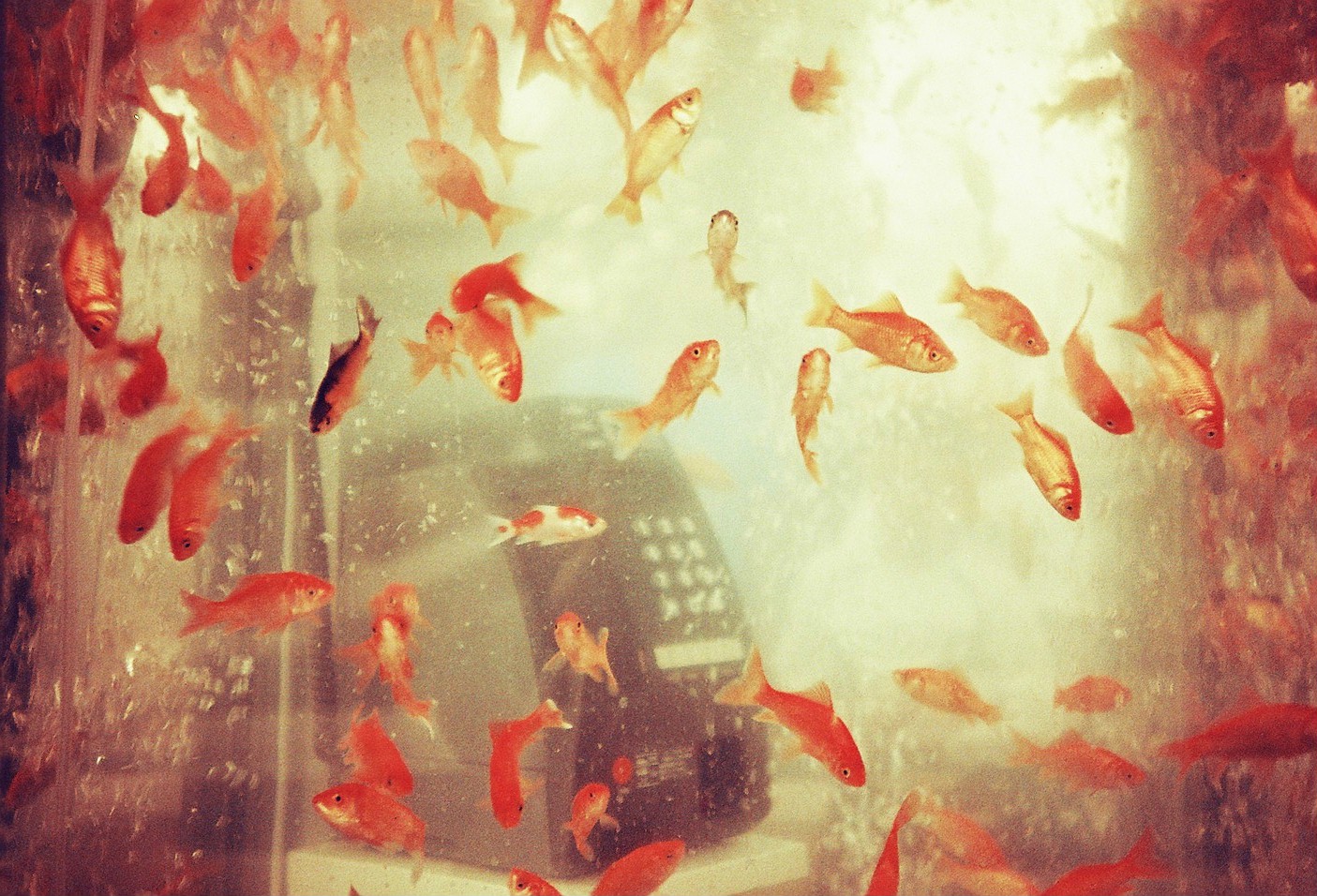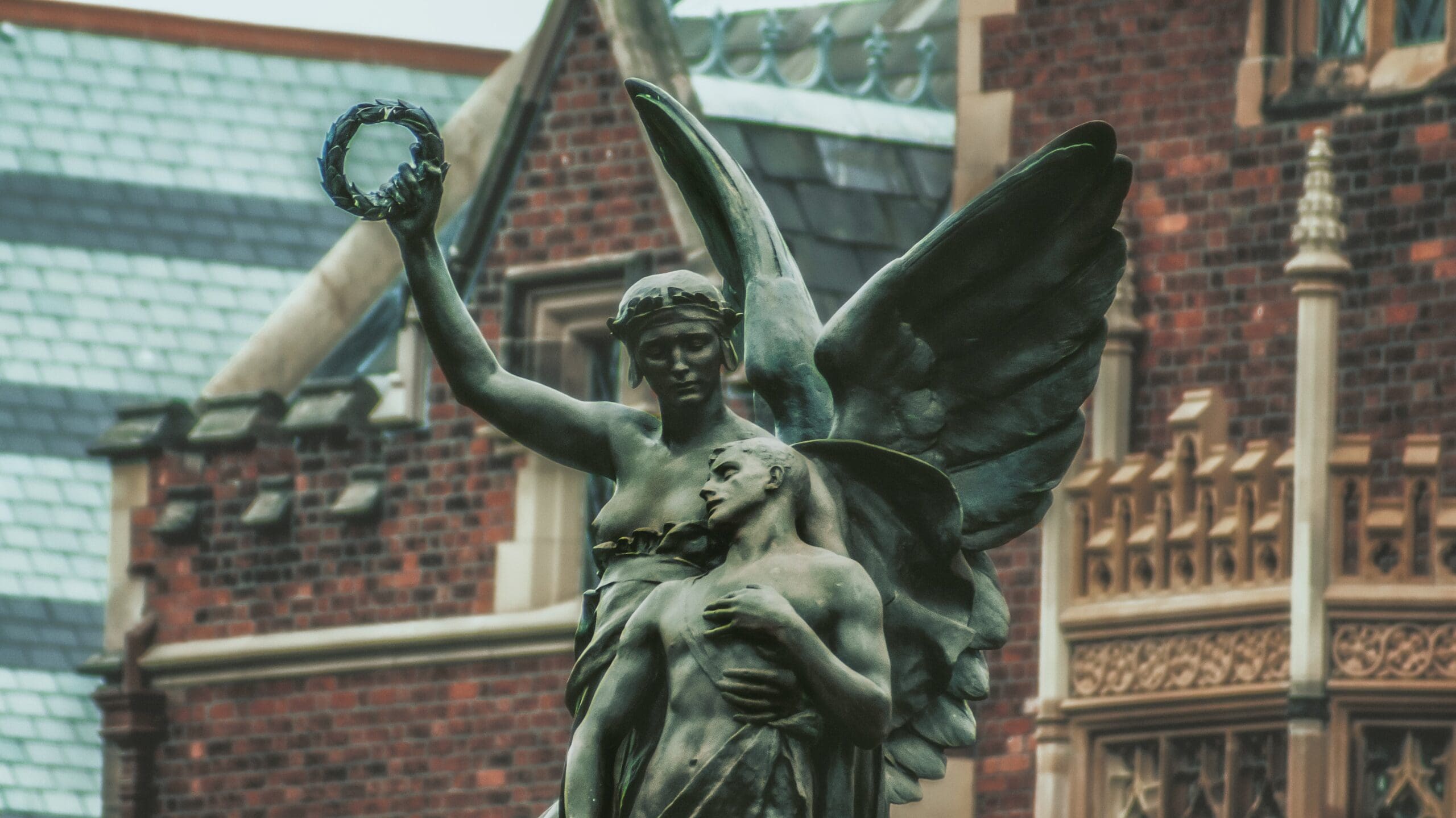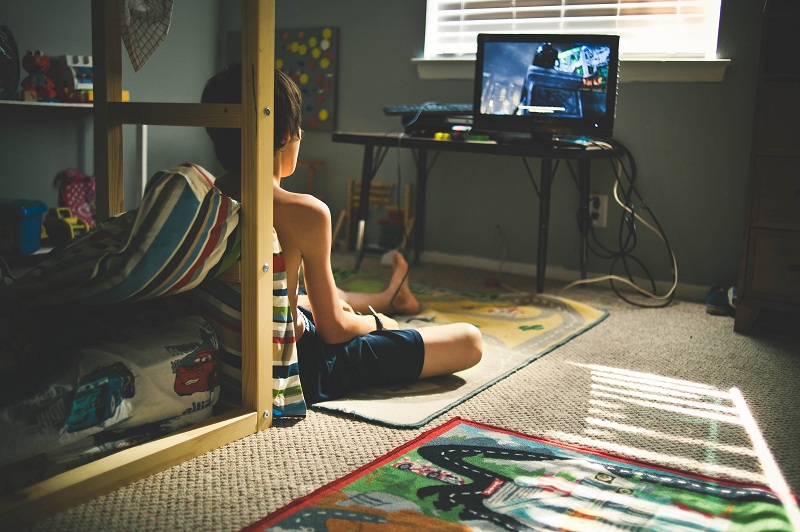The poet Charles Bukowski said “I don’t know about other people, but when I wake up in the morning and put my shoes on, I think, Jesus Christ, what now?”
I usually wake up thinking about this quote. I also have no idea what I’m going to do each day. For a couple of seconds each morning, I am amazed that I have woken up again, and that there are certain things I must do. Things like eat, drink, and shower. Should I fail to do these things over a period of days or weeks, eventually I will cease to exist.
On this particular day, I need to start thinking about all the times I’ve been in uncharted waters.
There was the time I climbed Mt. Fuji in flip flops and got lost. There was also the time I walked alongside train tracks, thinking that if I were to take one step to the left and a train came, I would cease to exist. And then there was the time I floated on my back in the sea and ended up getting caught in a riptide and drifting way out, until lifeguards had to rescue me—the clear and glassy water; the buzz of the lifeboat’s engine; the feeling of freedom and detachment as I got further and further from the shore, eavesdropping on the people I could hear talking on the beach even though they were so far away.
This is a possible beginning. I’ve begun so many unfinished pieces of writing that I’m able to begin a piece of writing like this. (This will probably become another of those unfinished pieces.)
I have gotten out of bed and walked to the top of the stairs. I want to go down the steps one at a time. When I go up or down steps two or three at a time, I’m being impatient. It’s like skipping over sentences while reading a novel. Sometimes I think of life as a three dimensional novel. I want to read every sentence without skipping over anything. I don’t want to buy pre-chopped vegetables when I can chop them myself. I want to grow my own vegetables, not those grown by strangers, for which I pay them via the middleman of the supermarket. That’s prostitution. Vegetable prostitution. Supermarkets are like pimps that take advantage of innocent vegetables. I think of eating as a sexual act, which is why I feel weird eating around people, and when people watch me eat.
I just thought of something I could write about that has to do with uncharted waters.
My nanna and I entered uncharted waters when we walked into a field full of cows. According to figures from the Health and Safety Executive, as of 2015, 74 people have been killed by cows in the past 15 years. The farm belonged to my nanna’s brother-in-law, who has owned the farm for over 50 years. The area around the farm has steadily become more and more built up, so that it is now surrounded by roads and apartment blocks. When my nanna and I entered the field, the cows seemed to hardly notice us. We walked around the edge of the field, thinking we’d be safe there. The cows gradually encroached on us, and at one point I looked around to see that nearly all of the cows were suddenly surrounding us, less than 10 feet away, looking tetchy and hostile, staring at us with their huge black eyes. The ones at the front of the crowd appeared to start charging for us before hesitating, as if one of the other cows was holding it back, saying ‘Don’t, Terry! It’s not worth it, just leave them!” I thought that if we stopped, it would be the end for us, so we continued to walk around the edge of the field as if nothing was wrong, and eventually we managed to get out without being stampeded to death. I was disappointed that the cows could not tell that I was a vegetarian. I had been stereotyped by a herd of cows.
I go down the stairs, one step at a time.
Ok, I feel like I can start writing about ‘Uncharted Waters’ now. I feel like I’ve earned the right to write. The philosopher Alan Watts said “If you write, you are a writer.” He also said “Write as if you’re hanging off the edge of a cliff.” He also said “The meaning of life is just to be alive. It is so plain and so obvious and so simple. And yet, everybody rushes around in a great panic as if it were necessary to achieve something beyond themselves.” He also probably said “Hello,” “Goodbye,” “I’m hungry,” and “I want my mummy,” but those things were never recorded.
Am I trying to achieve something beyond myself? Did Alan Watts achieve something beyond himself by saying things like “…everybody rushes around in a great panic as if it were necessary to achieve something beyond themselves”?
The haiku poet Matsuo Basho entered ‘Uncharted Waters’ in a metaphorical sense when he left his home to go traveling into the deep north of Japan, as depicted in his book, ‘The Narrow Road to the Deep North.’ Believing that the mystery of the universe was contained within the North of Japan, he sold his house in Edo (present-day Tokyo) in order to write haikus about the things he saw as he traveled from place to place, with nothing but a few essential belongings, such as his robe, and with no one for company other than his servant. Basho wrote:
“The ancient poet
Who pitied monkeys for their cries,
What would he say, if he saw
This child crying in the autumn wind?”
He also wrote, during a two-year period of self-imposed isolation:
“Only for morning glories
I open my door—
During the daytime I keep it
Tightly barred.”
I would like to sell all my things and go on a trip into ‘Uncharted Waters,’ but I don’t have a servant. I would like to enter the ‘Uncharted Waters’ of myself. I wouldn’t need a servant for that. This moment is an example of ‘Uncharted Waters.’ This moment, in which I’m having an argument about vegetable juice with my mother, espousing the benefits of drinking vegetable juice, saying that the benefits of drinking vegetable juice outweigh the fact that vegetable juice is not enjoyable to drink. My mother is saying that she wants to drink fruit juice instead of vegetable juice because it will taste nicer. I’m saying that drinking juice made solely of fruits will raise the body’s insulin levels, that drinking vegetable juice—although it may not taste nice—is far more beneficial to your body than drinking fruit juice. We’re disagreeing. I feel bad.
It’s 10 minutes later and mother has gone out. I am alone.
Sometimes I do things or things happen when I’m alone that make me laugh. Just now I knocked over a bottle of water, which hit a bottle of suntan lotion, which fell off the kitchen counter and onto the bin. The bin is one of those ones that opens when you press the lid, so when the bottle of suntan lotion landed on it, it opened, and it made me laugh because the bin was like a mouth that was being opened by another inanimate object, so that these objects, as a result of my unintentional movement, had connected in such a way as to make me, a human being, laugh. The bin opened for no reason. I had no rubbish I needed to put into it. Its function was not necessary in that moment of time. Its function became a source of humour to me. The fact that this tiny inconsequential accident could so easily not have happened made me briefly happy. You can’t plan for something like this to happen, you can only wait and see if it will. These things are important to me. These things are more important to me than things like relationships, marriage, career, and success.
I need to decide which form of narration I’m going to use in my piece. My choices are: “I,” “You,” and “He.” I don’t know which form of address feels more like me: “You,” as in “You did X,” “I,” as in “I did X,” or “He,” as in “He did X.” “I have just ordered ink off the internet.” “You have just ordered ink off the internet.” “He has just ordered ink off the internet. “You feel strange.” “I feel strange.” “He feels strange.” Now it feels as if there are three people instead of one. “We feel strange.”
In Lord of the Rings, Gollum addresses himself as “We.” He is referring to both himself and his hobbit alter-ego, Sméagol. When he talks, Sméagol uses the first person exclusive, as in “I don’t know. I can’t help it,” whereas, Gollum, when he talks, uses the inclusive “We”: “Then we shall be master. Gollum.” Humble hobbits are not supposed to want fancy rings. They’re supposed to be content with what they have. Sméagol wants something, the ring, so he creates an alter ego in order to get what he wants, something for which he will have to do bad things. He is not satisfied with being himself, he wants something that requires that he go beyond himself. He creates Gollum so that he can blame someone else for his selfishness and bad deeds. That’s my own interpretation. Another theory is that the “We” he is referring to is him and the ring itself. If he were alive today, Gollum would probably be diagnosed with schizophrenia or some other mental illness. But then, many people from the British Isles and the Republic of Ireland often refer to themselves in a similar way, for example, “Give us a pint,” not all of whom would be diagnosed with a mental illness.
Lord of the Rings is a movie that’s all about entering uncharted waters.
Pythagoras said “Don’t speak unless what you have to say is more important than silence.” Is what he said more important than silence? I don’t think anything is more important than silence. Trees know this. Mountains know this. Flowers know this. Everything that is silent knows this. Clouds know this. I am a cloud trapped in a man’s body. I know how to be a cloud; I don’t know how to be a man. I don’t know how to be good at talking. I don’t know how to be good at anything. I don’t know how to be a good writer. I can’t be a bad one or no one will read what I write. This is terrible writing. This is the way Gollum would write. If I were to write well based on what is conceived of as good writing, I’d have more chance of becoming successful. I’d publish books, attract a mate, get married, get divorced, and die. If I continue to be a bad writer I won’t become successful, attract a mate, get married, or get divorced, but I would still die, probably. Sometimes I think I like being a bad writer. If I didn’t like being a bad writer, I wouldn’t continue to write in this way. If I were to say the right things and appear the right way I would increase my chances of attracting a mate. If I were to turn up to a date wearing pyjamas it would not be attractive. If I were to say things to women like “I am a terrible writer who is lonely and not good at being a man, but I do a mean impression of a cloud,” that would also be bad for my prospects of finding romance. A future based on the past. That’s what women want. Understand. Do research. Stop staring at trees. Stop being silent around people. Stop being so cloud-like. Observe others, those that are in romantic relationships. What do they say and do? How do they speak? Are they happy? Are they lonely?
This series of thoughts is like a set of waves. It will die down and another one will start again, beginning at the horizon. (I’m not proud of that analogy. It’s redundant to comment on your own thoughts, to make an analogy for your thoughts. It’s stupid and redundant. I like stupid and redundant things. Writing is stupid and redundant. Pretty much everything is stupid and redundant, when you think about it.)
The horizon is one big mirror. (I’m not sure why I wrote that. Perhaps it could be the title.) Although I also like the title Moments of Suffocating Dullness Interspersed with Violent and Near-suicidal Flashes of Excitement. I wrote this sentence down after I saw it on the internet. This sentence does an adequate job of reflecting my life. It was how a Japanese woman described her life with a photographer. The photographer would photograph her each morning as she left for work. When they broke up, the photographer spent years photographing nothing but crows.
Reading this all back, it seems like a series of beginnings. With each sentence, I begin again.
This is another beginning.
I know what I’ll do today. I’ll walk to the sea. The sea is beautiful. That’s my task for today: go to the sea and swim, swim into uncharted waters, then I’ll come back and begin my piece about uncharted waters, which will be about my experience of swimming into uncharted waters. I want to run into the sea. Running into the sea was the thing I most looked forward to doing when I went on holiday to the beach as a kid. I would run into it as if I were smashing through a sheet of glass. Entering the sea is like entering one big beginning. (I’m not sure what that means, but I think that’s how I’ll end this.)
Edd Rose is 30 years old and lives in Cornwall, England. He has been writing for 6 years, his focus throughout being on becoming as simultaneously bizarre and coherent as possible.




